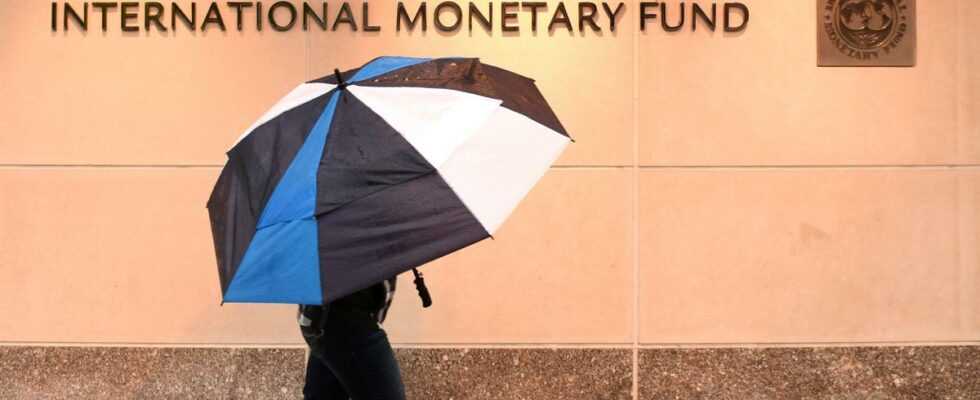About 60-70% of Russia’s current demand for oil and natural gas could disappear over the next few years, according to the IMF.
Inflation is expected to exceed 20% this year in Russia and the Russian economy will suffer in the future from a fall in energy exports which are for the moment largely offset by the increase in energy prices, indicates the Monetary Fund (IMF) in its report on Europe published on Friday. “In Russia, sanctions and unprecedented uncertainty are expected to weigh heavily on investment and exports, as well as depress imports and private consumptionsum up the authors of the report.
Read alsoWar in Ukraine: is it possible to isolate the Russian economy “in a few hours”?
SEE ALSO – “The world is rocking”: with inflation and war, Nicolas Baverez compares the current situation to that of 1945
The IMF stresses that the energy sector, “backboneof the Russian economy, was excluded from the sanctions. But “there are signs that Russian energy exports are being shunned in the market“. “More importantly, Germany and many EU countries have effectively begun to wean their economies off Russian energy sources.“continue the authors of the report.
The IMF has calculated that around 60-70% of Russia’s current demand for oil and natural gas could disappear over the next few years.which will force Russia to diversify its exports to other regions“.
This week, the IMF, which was holding its spring meetings, indicated that it was expecting an 8.5% contraction in Russia’s gross domestic product, mainly due to a fall in export volumes combined with a decline in domestic demand. For now, “energy exports in 2022 expected to reach US$350 billion, up 40% from last year due to higher prices”, according to the data published in the report on Friday.
Inflation over 20% in 2022
“From next year, however, a decline in the volume and price of Russia’s energy exports is expected to gradually reduce Russia’s current account surplus.“, explain the authors. They estimate that in the medium term, energy exports could fall to $250 billion, as the European Union reduces its energy imports from Russia.
Read alsoIf sanctions persist, Russia’s economy will take years to rebuild, Russian officials say
As for inflation, it had risen rapidly in March due to the sharp depreciation of the ruble and shortages of certain goods. Nevertheless, “recent data suggests signs of moderation due to ruble appreciation and curbs on food exportsnotes the IMF. Inflation should nevertheless exceed 20% in 2022.
The authors of the report note that the measures taken by the government have been effective in mitigating the impact of sanctions imposed by Western countries in retaliation for the Russian invasion of Ukraine. “Deposits and the exchange rate have almost completely recovered following the measures taken by the Bank of Russia to stabilize confidence in the financial system“, they note in particular.
SEE ALSO – Bruno Le Maire details the effectiveness of the economic sanctions imposed on Russia
